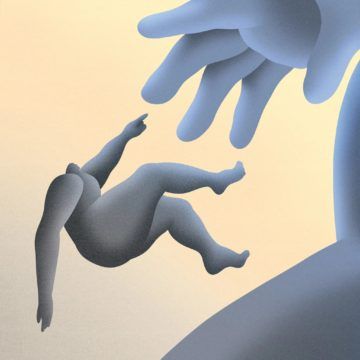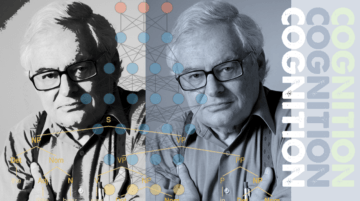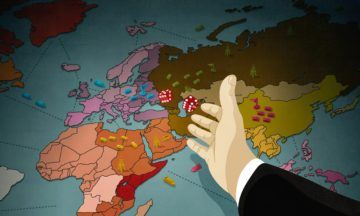by Charlie Huenemann
“Monotonizing existence, so that it won’t be monotonous. Making daily life anodyne, so that the littlest thing will amuse.” —Bernardo Soares (Fernando Pessoa), The Book of Disquiet, translated by Richard Zenith, section 171
 Senhor Soares goes on to explain that in his job as assistant bookkeeper in the city of Lisbon, when he finds himself “between two ledger entries,” he has visions of escaping, visiting the grand promenades of impossible parks, meeting resplendent kings, and traveling over non-existent landscapes. He doesn’t mind his monotonous job, so long as he has the occasional moment to indulge in his daydreams. And the value for him in these daydreams is that they are not real. If they were real, they would not belong to him. They would belong to others as public resources, and not reside in his own private realm. And what is more, if they were real, then what would he have left to dream? Far better, he thinks, “to have Vasques my boss than the kings of my dreams.” It’s more than that he doesn’t mind his monotonous job. On the contrary: the more monotonous his existence, the better his dreams.
Senhor Soares goes on to explain that in his job as assistant bookkeeper in the city of Lisbon, when he finds himself “between two ledger entries,” he has visions of escaping, visiting the grand promenades of impossible parks, meeting resplendent kings, and traveling over non-existent landscapes. He doesn’t mind his monotonous job, so long as he has the occasional moment to indulge in his daydreams. And the value for him in these daydreams is that they are not real. If they were real, they would not belong to him. They would belong to others as public resources, and not reside in his own private realm. And what is more, if they were real, then what would he have left to dream? Far better, he thinks, “to have Vasques my boss than the kings of my dreams.” It’s more than that he doesn’t mind his monotonous job. On the contrary: the more monotonous his existence, the better his dreams.
This is, of course, mere escapism from the crappy life he’s stuck with. His attempt to justify his monotonous existence by saying that it allows for better daydreams is as see-through as an 8-dollar verification program. He’s just coating his own unremarkable existence in cheap veneer. Soares, one might judge, should have the courage to make his life really better, to find something worth doing, worth taking pride in, and something of some value to others. He should dare to live dangerously. Maybe he could start a book club. There’s nothing wrong with daydreams, okay, but they should serve only as an occasion for a busy person to “recharge” and then return with greater focus to an active, productive life.
But as one gets older and realizes that most of life’s good stuff is contained between two ledger entries, one sees that if it weren’t for dreams, for stories and for art, for inventing personas and writing books through their hands and eyes, life would be insufferable. This is because our brains are too big. We are overpowered for the tasks modern life assigns us, and if we narrowed our focus to just what’s actually before us, we would find ourselves on the road with Estragon and Vladimir, surveying a bleak Beckettian stage, haunted by a vague sense that wasn’t there supposed to be something more, someone showing up who would make a difference? Read more »
 A select group of the world’s top researchers studying obesity recently gathered in the gilded rooms of the Royal Society, the science academy of Isaac Newton and Charles Darwin, where ideas like gravity and evolution were once debated.
A select group of the world’s top researchers studying obesity recently gathered in the gilded rooms of the Royal Society, the science academy of Isaac Newton and Charles Darwin, where ideas like gravity and evolution were once debated.
 What happened in South Korea offers proof that fundamental transformations of living standards are possible in a few decades. South Korea’s experience, and similar growth trajectories in Taiwan and Singapore, have often been referred to as “economic miracles.” But what if South Korea’s economic growth wasn’t something mysterious or unpredictable, but rather something that we could comprehend and, most importantly, replicate? At current rates of growth, living standards in the poorest countries in the world will eventually catch up to the United States — in about 700 years.
What happened in South Korea offers proof that fundamental transformations of living standards are possible in a few decades. South Korea’s experience, and similar growth trajectories in Taiwan and Singapore, have often been referred to as “economic miracles.” But what if South Korea’s economic growth wasn’t something mysterious or unpredictable, but rather something that we could comprehend and, most importantly, replicate? At current rates of growth, living standards in the poorest countries in the world will eventually catch up to the United States — in about 700 years. Colorado-based Prometheus Materials has developed masonry blocks from a
Colorado-based Prometheus Materials has developed masonry blocks from a  T
T
 Senhor Soares goes on to explain that in his job as assistant bookkeeper in the city of Lisbon, when he finds himself “between two ledger entries,” he has visions of escaping, visiting the grand promenades of impossible parks, meeting resplendent kings, and traveling over non-existent landscapes. He doesn’t mind his monotonous job, so long as he has the occasional moment to indulge in his daydreams. And the value for him in these daydreams is that they are
Senhor Soares goes on to explain that in his job as assistant bookkeeper in the city of Lisbon, when he finds himself “between two ledger entries,” he has visions of escaping, visiting the grand promenades of impossible parks, meeting resplendent kings, and traveling over non-existent landscapes. He doesn’t mind his monotonous job, so long as he has the occasional moment to indulge in his daydreams. And the value for him in these daydreams is that they are 
 Sughra Raza. Chughtai In Shabnam’s Living Room, November, 2022.
Sughra Raza. Chughtai In Shabnam’s Living Room, November, 2022.
 I moved to Berlin in 1984, but have rarely written about my experiences living in a foreign country; now that I think about it, it occurs to me that I lived here as though in exile those first few years, or rather as though I’d been banished, as though it hadn’t been my own free will to leave New York. It’s difficult to speak of the time before the Wall fell without falling into cliché—difficult to talk about the perception non-Germans had of the city, for decades, because in spite of the fascination Berlin inspired, it was steeped in the memory of industrialized murder and lingering fear and provoked a loathing that was, for some, quite visceral. Most of my earliest friends were foreigners, like myself; our fathers had served in World War II and were uncomfortable that their children had wound up in former enemy territory, but my Israeli and other Jewish friends had done the unthinkable: they’d moved to the land that had nearly extinguished them, learned to speak in the harsh consonants of the dreaded language, and betrayed their family and its unspeakable sufferings, or so their parents claimed. We were drawn to the stark reality of a walled-in, heavily guarded political enclave, long before the reunited German capital became an international magnet for start-ups and so-called creatives. We were the generation that had to justify itself for being here. It was hard not to be haunted by the city’s past, not to wonder how much of the human insanity that had taken place here was somehow imbedded in the soil—or if place is a thing entirely indifferent to us, the Earth entirely indifferent to the blood spilled on its battlegrounds.
I moved to Berlin in 1984, but have rarely written about my experiences living in a foreign country; now that I think about it, it occurs to me that I lived here as though in exile those first few years, or rather as though I’d been banished, as though it hadn’t been my own free will to leave New York. It’s difficult to speak of the time before the Wall fell without falling into cliché—difficult to talk about the perception non-Germans had of the city, for decades, because in spite of the fascination Berlin inspired, it was steeped in the memory of industrialized murder and lingering fear and provoked a loathing that was, for some, quite visceral. Most of my earliest friends were foreigners, like myself; our fathers had served in World War II and were uncomfortable that their children had wound up in former enemy territory, but my Israeli and other Jewish friends had done the unthinkable: they’d moved to the land that had nearly extinguished them, learned to speak in the harsh consonants of the dreaded language, and betrayed their family and its unspeakable sufferings, or so their parents claimed. We were drawn to the stark reality of a walled-in, heavily guarded political enclave, long before the reunited German capital became an international magnet for start-ups and so-called creatives. We were the generation that had to justify itself for being here. It was hard not to be haunted by the city’s past, not to wonder how much of the human insanity that had taken place here was somehow imbedded in the soil—or if place is a thing entirely indifferent to us, the Earth entirely indifferent to the blood spilled on its battlegrounds. 
 A Republican used to be someone like Dwight Eisenhower, a moderate who worked well with the opposing party, even meeting weekly with their leadership in the Senate and House. Eisenhower expanded social security benefits and, against the more right-wing elements of his party, appointed Earl Warren to be the Chief Justice of the Supreme Court. Warren, you’ll remember, wrote the majority opinion of Brown v Board of Education, Miranda v Arizona, and Loving v Virginia. If Dwight Eisenhower were alive today, he would be branded a RINO and a communist by his own party. I suspect he would become registered as unaffiliated.
A Republican used to be someone like Dwight Eisenhower, a moderate who worked well with the opposing party, even meeting weekly with their leadership in the Senate and House. Eisenhower expanded social security benefits and, against the more right-wing elements of his party, appointed Earl Warren to be the Chief Justice of the Supreme Court. Warren, you’ll remember, wrote the majority opinion of Brown v Board of Education, Miranda v Arizona, and Loving v Virginia. If Dwight Eisenhower were alive today, he would be branded a RINO and a communist by his own party. I suspect he would become registered as unaffiliated. 

 It’s not about dying, really—it’s about knowing you’re about to die. Not in the abstract way that we haphazardly confront our own mortality as we reach middle age and contemplate getting old. And not even in the way (I imagine) that someone with a terminal diagnosis might think about death—sooner than expected and no longer theoretical. It’s much more immediate than that.
It’s not about dying, really—it’s about knowing you’re about to die. Not in the abstract way that we haphazardly confront our own mortality as we reach middle age and contemplate getting old. And not even in the way (I imagine) that someone with a terminal diagnosis might think about death—sooner than expected and no longer theoretical. It’s much more immediate than that.
 On the first page of his 2015 blockbuster book,
On the first page of his 2015 blockbuster book,